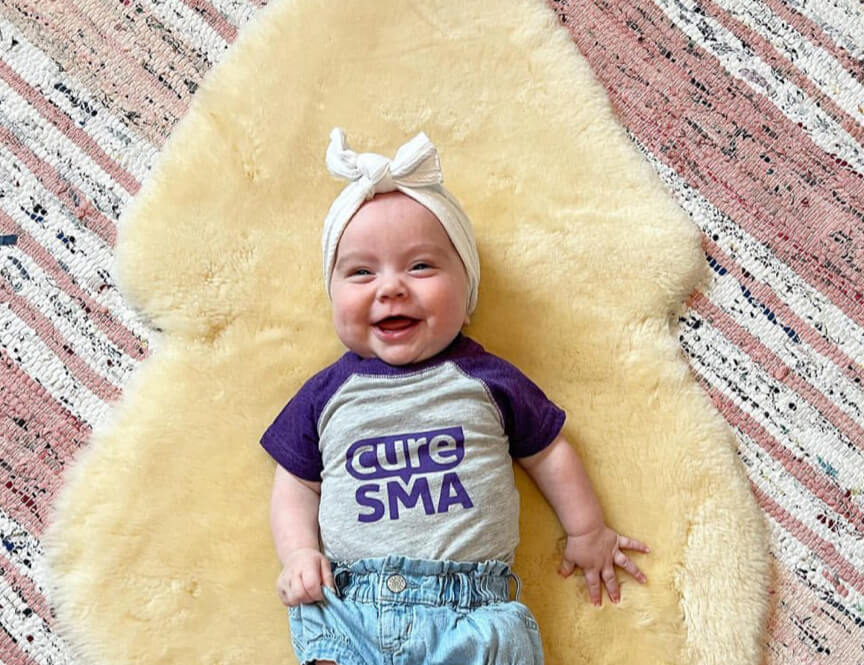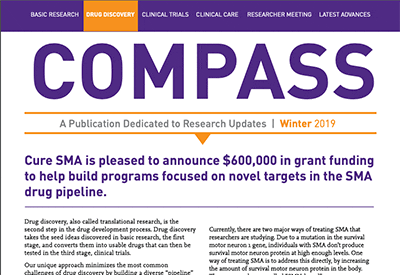
Genentech, a member of the Roche Group, today announced new interim data from two studies of Evrysdi® (risdiplam)—JEWELFISH and RAINBOWFISH. Genentech leads the clinical development of Evrysdi as part of a collaboration with the SMA Foundation and PTC Therapeutics.
About JEWELFISH Data
Data from JEWELFISH, an ongoing open-label study primarily evaluating the safety of Evrysdi in people aged 1 to 60 years who have been previously treated with another SMA-targeting therapy (i.e., nusinersen, onasemnogene abeparvovec) showed the safety profile of Evrysdi and increase in SMN protein levels are consistent with those observed in other Evrysdi studies.
Interim exploratory efficacy data from JEWELFISH also suggest stabilization in motor function at one year of treatment as measured by change from baseline in motor function measure (MFM-32). A recent survey from SMA Europe showed that almost 97% of people living with SMA reported disease stabilization as progress.
The JEWELFISH study enrolled the broadest patient population ever studied in an SMA trial, including patients with SMA Types 1-3 who received prior treatment across a wide range of ages and disease severities. Of the 174 people enrolled, 30% were teenagers and 35% adults, 62% had a HFMSE* score of less than 10 at baseline, 80% had scoliosis and 47% had undergone scoliosis surgery. Seventy-six people had previously been treated with nusinersen and 14 with onasemnogene abeparvovec. Evrysdi led to a sustained >2-fold increase in median SMN protein levels versus baseline in all patients who received prior treatment, irrespective of which treatment was previously received or SMA type.
The overall AE profile of Evrysdi treatment in pre-treated patients was consistent with that of treatment-naïve patients in FIREFISH and SUNFISH. The most common adverse events in all patients were upper respiratory tract infection (17%), pyrexia (17%), headache (16%), nausea (12%), diarrhea (11%), nasopharyngitis (10%) and vomiting (8%). The most common serious adverse events were pneumonia (2%), lower respiratory tract infection (2%), upper respiratory tract infection (2%) and respiratory failure (2%). There were no treatment-related adverse events leading to withdrawal or treatment discontinuation in JEWELFISH, with some patients receiving treatment for more than 3 years. The study is ongoing and the primary analysis will be conducted at month 24.
About RAINBOWFISH Data
Preliminary efficacy data from RAINBOWFISH, an ongoing open-label study evaluating Evrysdi in babies from birth to 6 weeks with pre-symptomatic SMA, showed that infants treated for 12 months achieved age-appropriate motor milestones, including sitting, standing, and walking, and improvements in motor function.
Preliminary efficacy data showed that of the 5 babies treated with Evrysdi for at least 12 months, all achieved sitting without support, rolling, and crawling. Of the 5, 2 had 2 SMN copies and 3 had >2 copies. Four of the infants were able to stand unaided and walk independently. In addition, 4 babies reached a maximum score of 64 on the CHOP-INTEND** scale, and 1 scored 63. Data on the primary endpoint, the number of infants sitting without support for at least 5 seconds, will be reported when all primary analysis patients have reached one year of treatment. Recruitment for RAINBOWFISH is ongoing.
The most common adverse events were nasal congestion (33%), cough (25%), teething (25%), vomiting (25%), eczema (17%), abdominal pain (17%), diarrhea (17%), gastroenteritis (17%), papule (rash; 17%) and pyrexia (fever; 17%). There were no adverse events leading to withdrawal or study discontinuation.
*Hammersmith Functional Motor Scale Expanded
**Children’s Hospital of Philadelphia Infant Test of Neuromuscular Disorders



